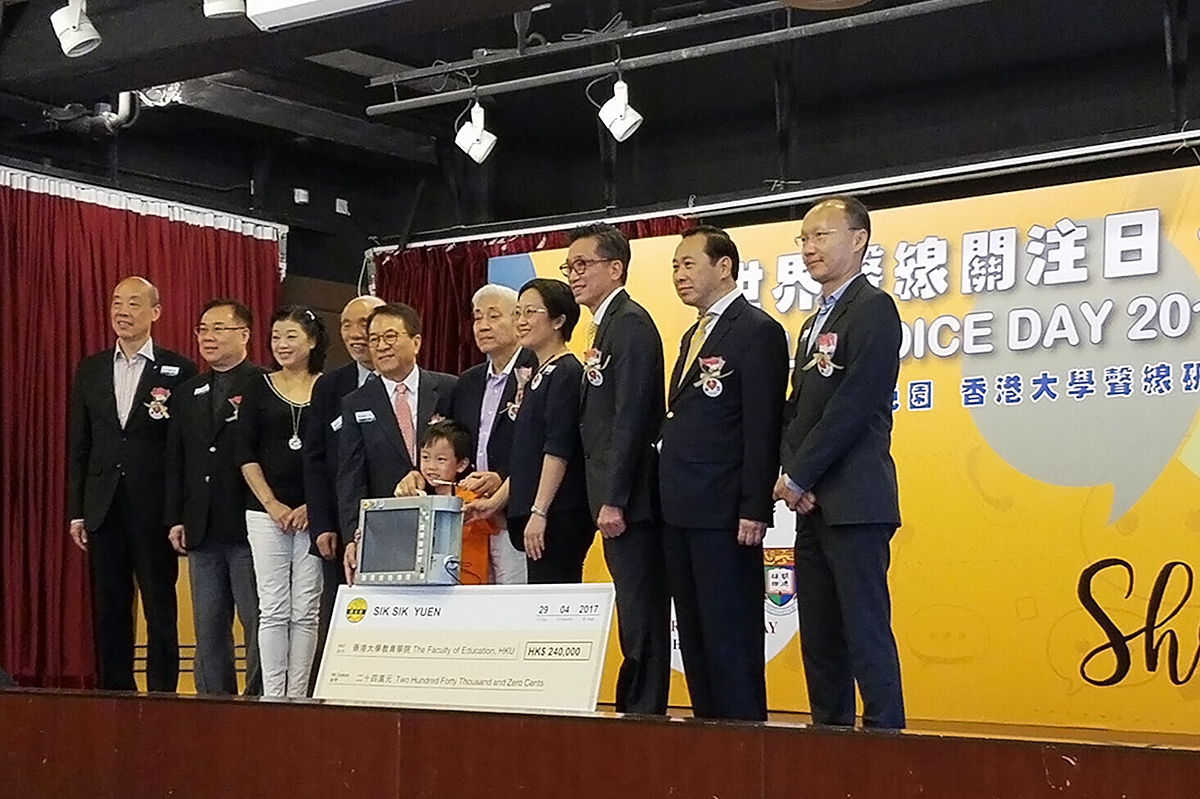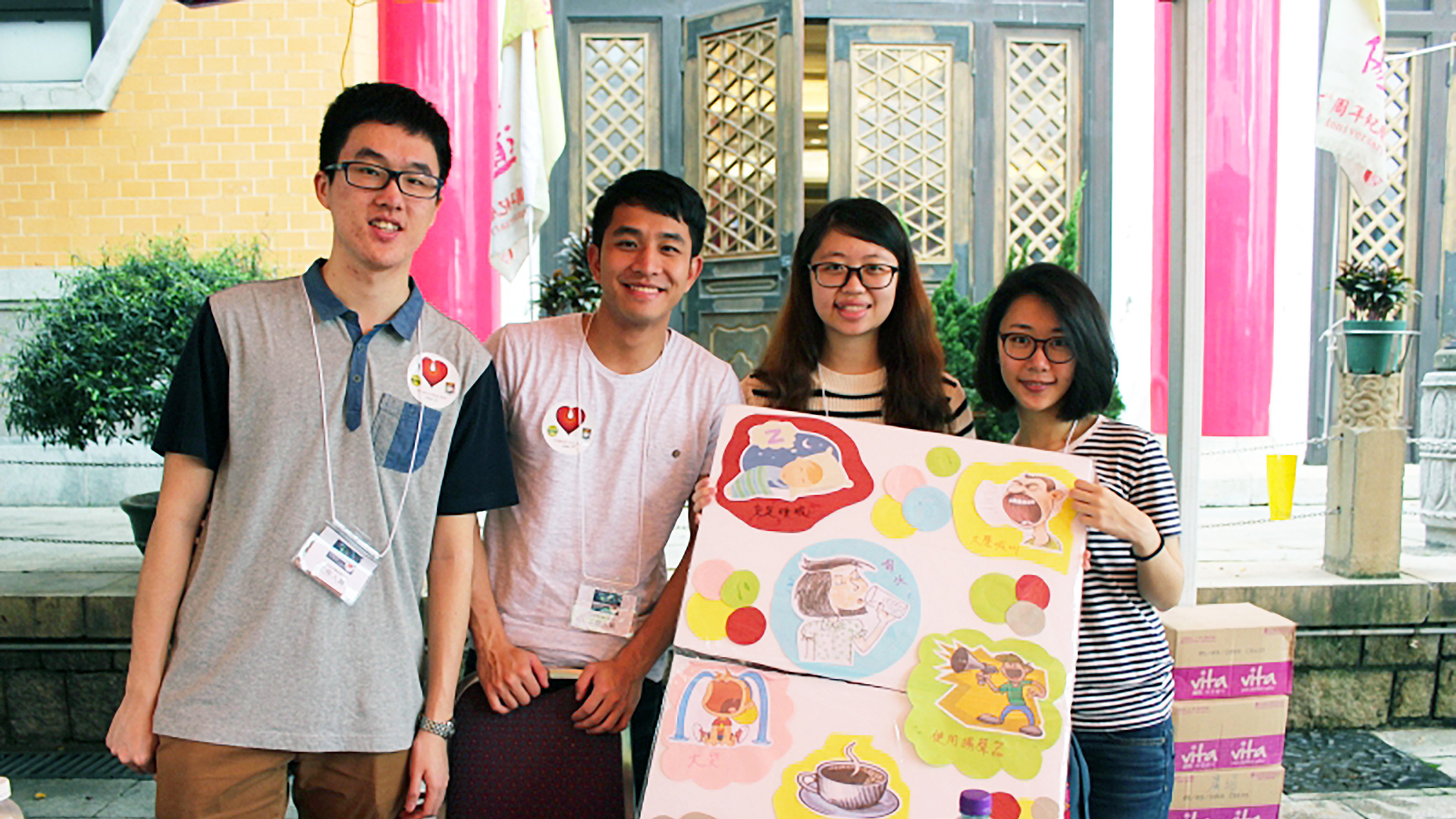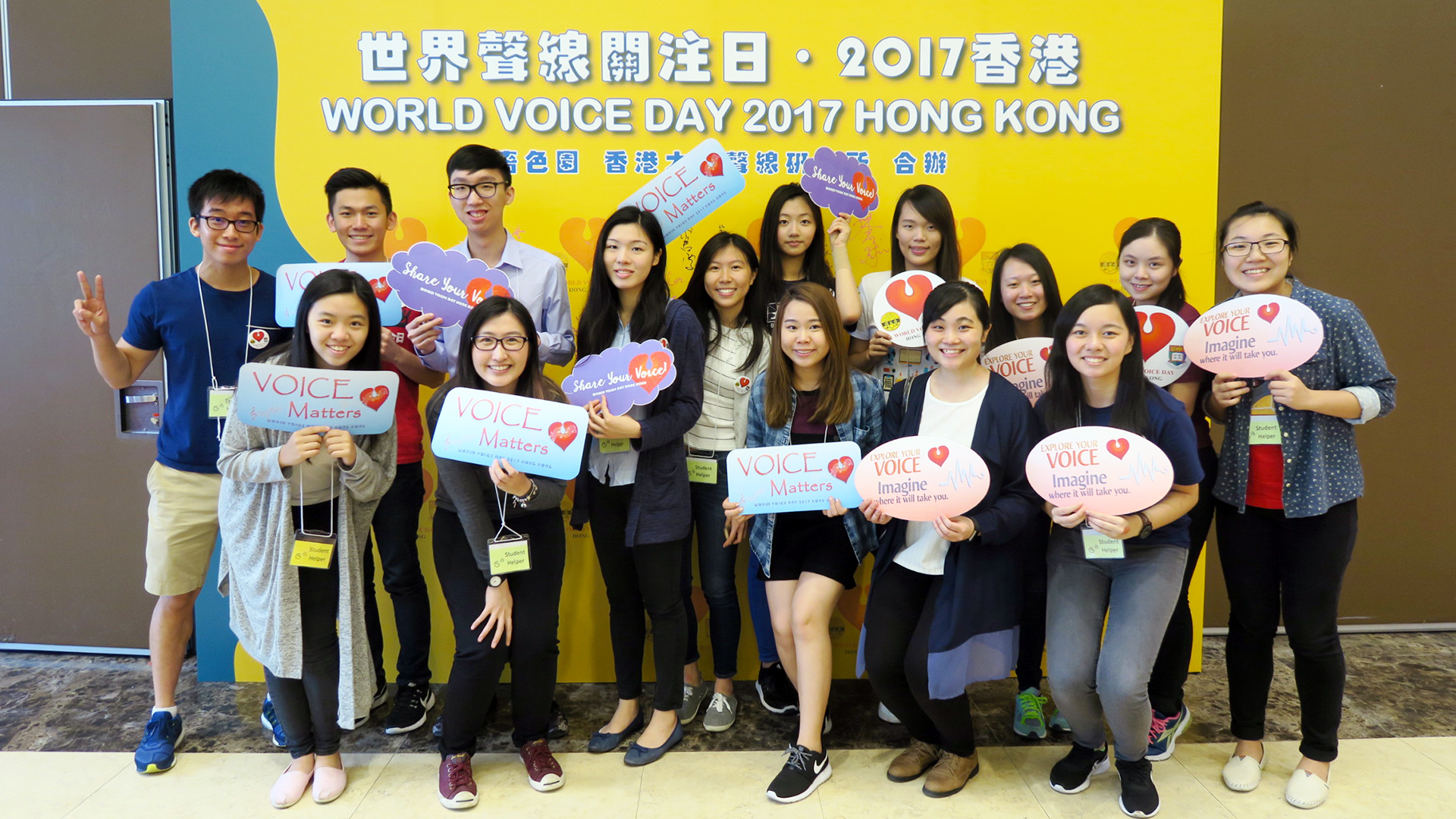
Green Voice Project for Teachers
Sponsored by General Research Fund of the Hong Kong Research Grant Council. Funded by a grant from the In-Service Teacher Education Programme (INSTEP), The University of Hong Kong.
Aim
Why Teachers?
In the light of education reform, working pressure faced by the teaching professionals has been increased tremendously. In a survey conducted by the Hong Kong Professional Teachers' Union in 2005, more than 30% of respondents have exhausted from their heavy workload, and some even have suffered from different kinds of health problems, like depression and headache. However, unlike the aforementioned, voice problem, which is also widely common among teaching professionals in Hong Kong, seems to have less serious attentions than it deserves.
This project is an attempt to explore the prevalence and starting time of voice problems among teaching professionals and the impact of voice disorder on their daily life.
From 1998 to 2004, questionnaires were administered to 208 final year students at HKU, and each teacher was followed up annually for 4 consecutive years. The results showed that the voice condition has significantly worsened after 3 years of teaching, with 30.8% and 32.7% of teachers have voice problems after the first and second year, and reaching 36.5% after the third year. Also, the percentage of teachers needed days off work because of voice problem has increased from 17.3% after the first year to 21.2% after the second year. As regards the impact of voice disorder on daily life, teachers have found that their job performance has been mostly affected, when comparing to other domains of life.
Based on the above findings, the research has projected that around 22,000, about one third of the total teaching population, have voice problems in Hong Kong, which results in total loss of 8,380 working days and HK$6.7 million of salary each year.
Given such a great impact that voice problems might cause to the overall productivity, Prof. Yiu had believed that it was a high time to launch voice protection education for teaching professionals in Hong Kong, "Our findings showed that up to 89% of the teaching professionals expressed that they would consider attending educational programme to improve their voice use. Some universities in UK already offer such kind of programme as compulsory courses while Singapore offers it in the postgraduate diploma programme in education. Hong Kong should catch up in developing this curriculum."
Project Activities
The Project is divided into 2 stages of development. The stage-one activity is the development of a voice problem prevention protocol for Hong Kong teachers. In stage two, the establishment of a support centre for teachers with voice problem provided home practice with a CD and online training session with speech therapists. The Faculty of Education has already launched voice protection education to both of student teachers and teachers at the early days of career.
項目研究
Chan, K., McPherson, B., Ma, E., & Yiu, E. (2009). Green voice for teachers: Reducing the risk of developing voice problems in teachers using the Teacher’s Voice Risk Calculator [Paper Presentation]. The Occupational Voice Symposium 2009, London, U.K.
Chan, K.M.-K. & Yiu, E.M.-L. (2010) A Comparison of the Effect of Two Training Programs in Preventing Teachers’ Voice Problems [Paper Presentation]. World Voice Congress 2010. Seoul 6-9 September 2010.
Chan, K. M.K. & Yiu, E.M.-L (2011) Green Voice Project: Preserving the healthy voice in teachers. Perspective in Voice Disorders, July, 2011, 62-70.
Yiu, E.M.L. (2009). Green Voice Project for the Teaching Population [Paper Presentation]. The Occupational Voice Symposium 2009; University College London Mar, 2009.
Reference
Chan, K. MK & Yiu, E. M-L. (2002) The Effect of anchors and training on the reliability of perceptual voice evaluation. Journal of Speech, Language and Hearing Research, 45:111-126.
Chan, K., Yiu, E. M-L & Ma, E.. (2005) A Longitudinal study on the occurrence and impact of voice problems on teachers [Paper Presentation]. 34th Annual Symposium of the Voice Foundation. Philadelphia, June 2005.
Chan, R. (1994). Does the voice improve with vocal hygiene education? A study of some instrumental voice measures in a group of kindergarten teachers. Journal of Voice, 8(3), 279-291.
Choi, C. Y., & McPherson, B. (2005). Noise levels in Hong Kong primary schools: implications for classroom listening. International Journal of Disability, Development and Education, 52, 345-360.
Lam, P.K.Y., Chan, K.M, Ho, W.K., Kwong, E., Yiu, E.M., Wei,W.I. (2006). Cross-cultural adaptation and validation of the Chinese Voice Handicap Index-10. Laryngoscope, 116, 1192-1198.
Ma, E. and Yiu, E.M-L (2001) Voice Activity and Participation Profile: Assessing the impact of voice disorders on daily activities. Journal of Speech, Language and Hearing Research, 44(3): 511-524.
Yiu, E. (2002) Impact and prevention of voice problem in the teaching profession: Embracing the consumers’ view. Journal of Voice, 16(2), 215-228.
Yiu E, M-L & Chan, K, M.K. (2005) (2nd Ed) A Simple Guide To Better Voicing: For Teachers and Professional Voice Users. Hong Kong: INSTEP. (ISBN Number: 962-8093-18-5)
Yiu, E.M.L. and Ho, P.S.P. (1991). Voice Problems in Hong Kong: A preliminary report. Australian Journal of Human Communication Disorders, 19(1):45-58.
Yiu, E., & Ho, E. Y.-Y. (2002). Short term effect of humming on vocal quality. Asia Pacific Journal of Speech, Language and Hearing, 7, 123-137.
Yiu E. M-L. & Ma E. P.M. (2001) Voice Therapy Instructional Manual. Yiu, E.M-L. (Ed) Clinical Voice Assessment and Therapy: A Hong Kong Perspective. Volume II. Hong Kong: University of Hong Kong. (ISBN number: 962-8093-74-6)
Yiu, E. M-L. & Ma, E. (2002) Voice activity limitation and participation restriction in teaching profession: The need for preventive voice care. Journal of Medical Speech Pathology, 10(1): 51-60.
Yiu, E. M-L. & Ng, C.Y. (2004) Equal Appearing Interval and Visual Analogue Scales in Perceptual Voice Evaluation. Clinical Linguistics and Phonetics, 18(3), 211-229.




